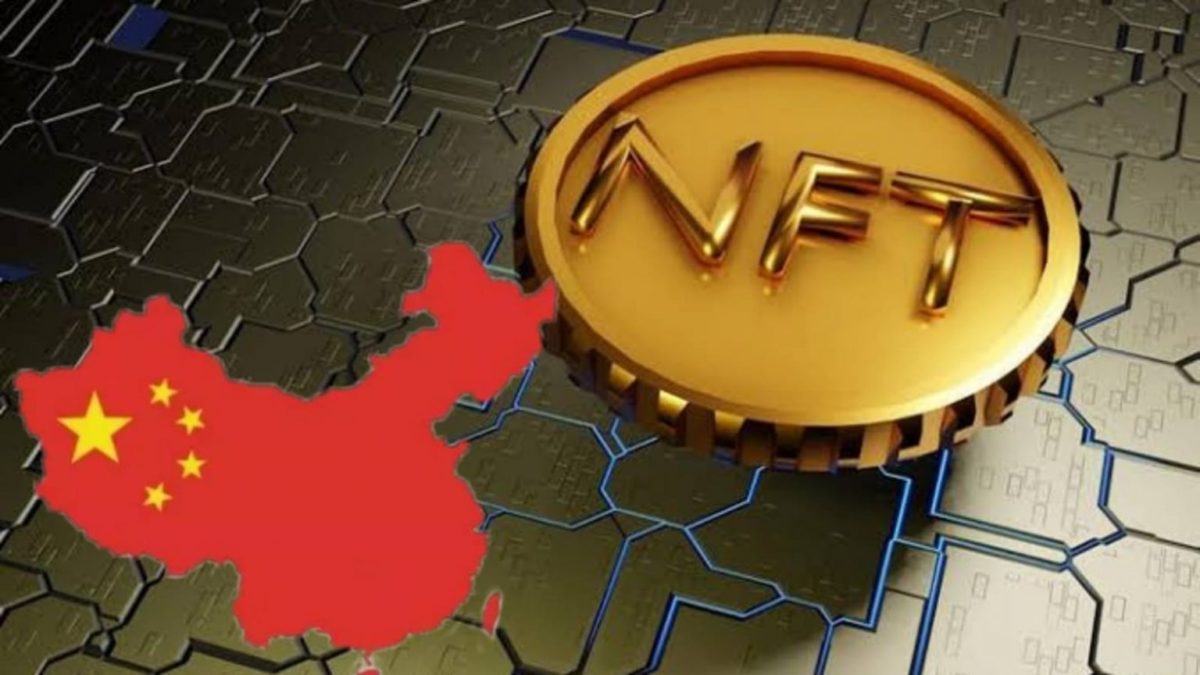Chinese Internet Giants Tencent And Alibaba Are Tightening NFT Rules, Here’s Why

Chinese internet giants Tencent and Alibaba have tightened certain rules on their respective NFT marketplaces, as part of preemptive measures to avoid any further regulatory crackdowns in the country. NFTs represent a gray area in China’s otherwise anti-crypto stance.
NFTs are considered as “digital collectibles” under Chinese law, and are still technically legal to distribute or collect. Their trading among third parties however, is banned, as part of China’s blanket crackdown on cryptocurrencies in 2021.
Chinese internet firms wary of more scrutiny
Tencent and Alibaba, China’s two largest tech companies, recently updated the terms of service for their platforms. Alibaba’s platform Jingtan said it would report users using bots or other specialized software to mass-buy collectibles.
The platform also said it would alert the police to any users found organizing transactions outside the platform in a manner that could be considered criminal, The South China Morning Post reported.
Tencent’s wildly popular social messaging app WeChat, which used to feature users selling some digital collectibles, banned any programs promoting NFTs on its platforms. Tencent’s stand-alone NFT marketplace, Huanhe, did not appear to have changed its terms of service so far.
NFTs, CBDC among China’s last ties to crypto
The popularity of NFTs as digital collectibles helped them avoid a crackdown on crypto-related products in the country last year. But their proximity to crypto, given that tokens are minted on a blockchain, has kept the status of digital collectibles somewhat tenuous in China.
Citizens have to register with their real name to purchase NFTs, and can only do so through yuan- compared to the use of crypto in most other NFT marketplaces.
The off-market trade of digital collectibles is also banned in the country. Scrutiny towards speculative trading and the creation of market bubbles was among the biggest motivators for China to ban cryptos in the country.
But the country has not lost its touch with blockchain technology. Earlier this year, it unveiled a digital version of its yuan currency. The Chinese government has also been looking into implementing blockchain technology in its digital infrastructure.
- Bitcoin Shows Greater Weakness Than Post-LUNA Crash; Is a Crash Below $60K Next?
- XRP Tops BTC, ETH in Institutional Flows As Standard Chartered Lowers 2026 Forecasts
- Bitcoin vs. Gold: Expert Predicts BTC’s Underperformance as Options Traders Price in $20K Gold Target
- CLARITY Act: White House to Hold Another Meeting as Crypto and Banks Stall on Stablecoin Yield Deal
- Bitcoin as ‘Neutral Global Collateral’? Expert Reveals How BTC Price Could Reach $50M
- Dogecoin, Shiba Inu, Pepe Coin Price Predictions As BTC Crashes Below $68k
- Ethereum Price Outlook as Harvard Shifts Focus from Bitcoin to ETH ETF
- HOOD and COIN Stock Price Forecast as Expert Predicts Bitcoin Price Crash to $10k
- XRP Price Prediction Ahead of Supreme Court Trump Tariff Ruling
- Crypto Price Prediction For This Week: Dogecoin, Solana and Cardano
- Bitcoin Price Prediction: How Could Brazil’s Strategic Bitcoin Reserve Proposal Impact BTC?


















